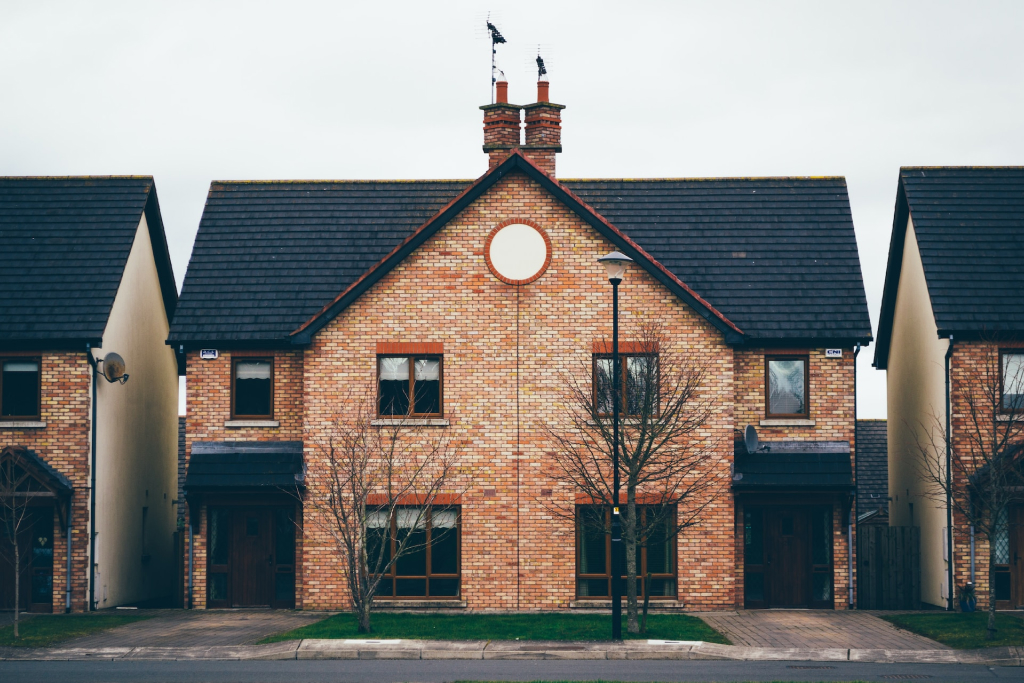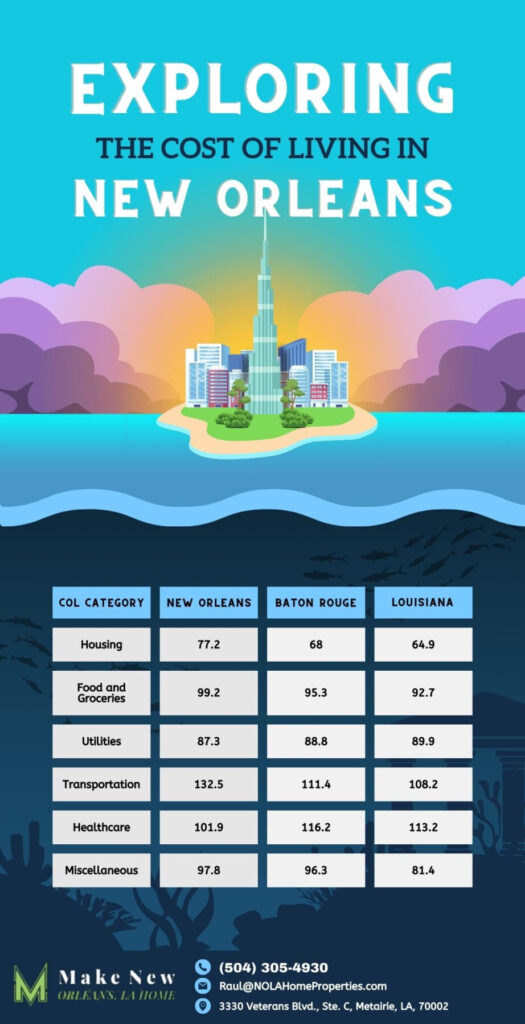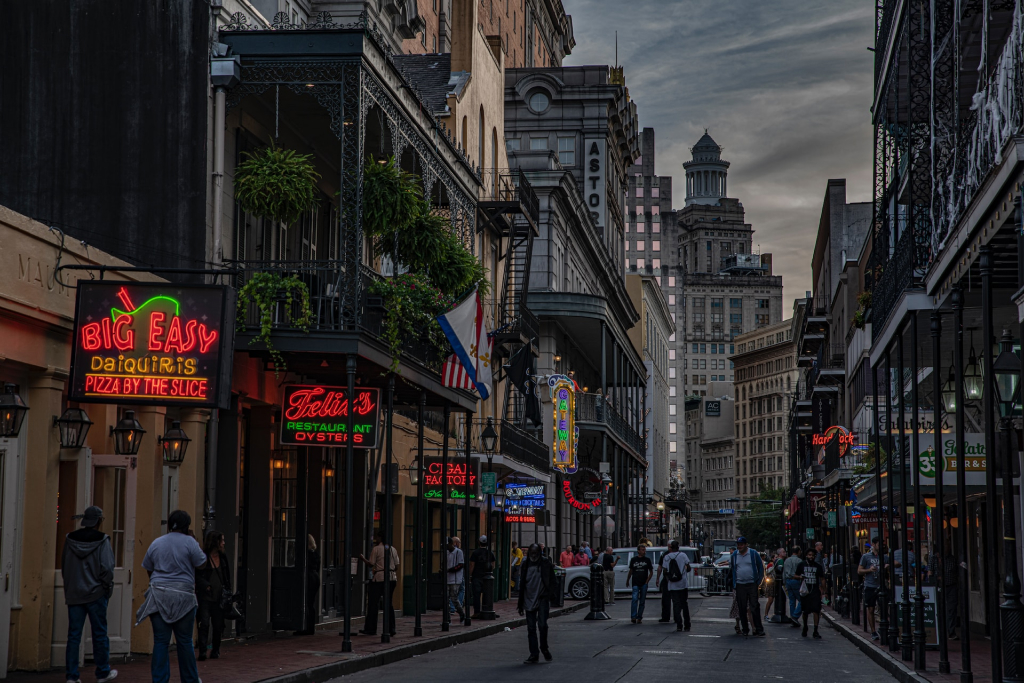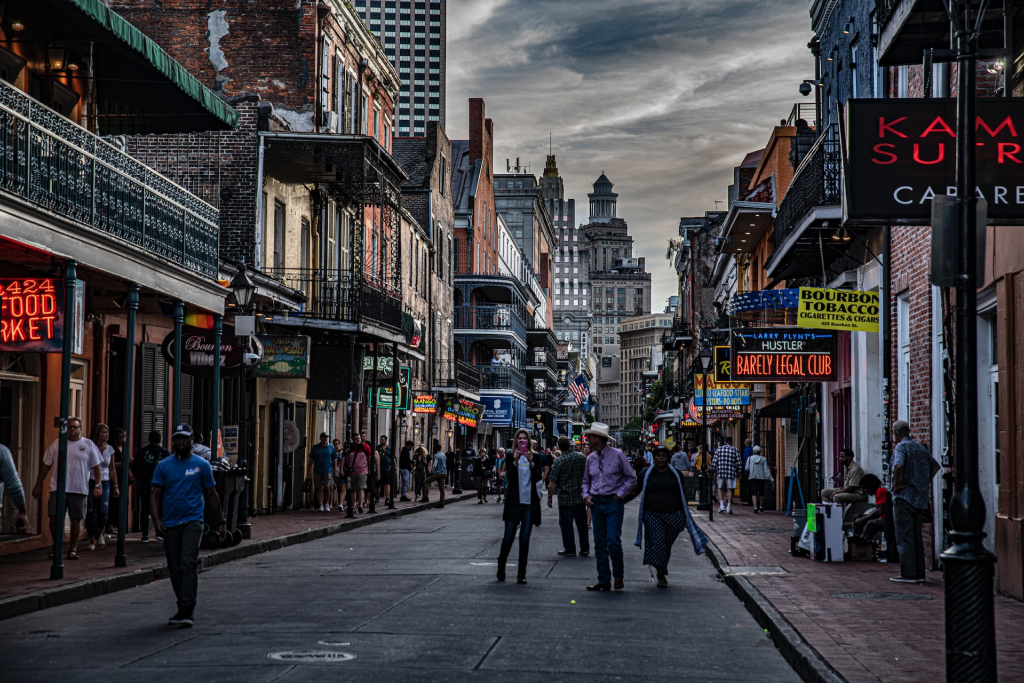Credit: Image by inboundREM | Source
New Orleans offers a delightful and vibrant place to call home, catering to singles, families, and retirees alike. Its picturesque neighborhoods, steeped in history, are complemented by a rich selection of diverse cuisines, a thriving music scene, lively festivals, top-notch entertainment options, and modern amenities.
But with everything it offers, you might wonder, is New Orleans an expensive place to live in?
Despite the increasing prices of everything, New Orleans is still among the cities in the country that are considered affordable. New Orleans’ cost of living, with a cost index of 101.6, is not that cheap, but not expensive.
That said, if you plan to relocate to New Orleans, having the basic knowledge about the factors affecting its cost of living and the required income will help you settle down in no time.
A single person will need around $1,188 and $4,275 for families of four to meet the monthly expenses in New Orleans. However, the estimate does not include rent.
To give you more ideas and help you plan your finances accordingly, let’s discuss the different factors of New Orleans’ cost of living.
Housing Expenses

Photo by Terrah Holly on Unsplash
Housing in New Orleans has a cost index of 77.2, 23% lower than the national average. It implies that the housing prices in the city are considered affordable compared to other areas in the country.
Having an average home value of $262,653 and a median price of $335,000, the real estate market of New Orleans provides several options that cater to different budgets and preferences.
For newcomers in New Orleans who have yet to make a plan to buy a house, renting is another option you have!
Here’s the average rental rate in New Orleans, depending on bedroom count:
| Bedroom Count | Average Rent |
|---|---|
| Studio | $1,233 |
| 1-Bed | $1,363 |
| 2-Bed | $1,698 |
| 3-Bed | $2,000 |
| 4-Bed | $3,525 |
Utility Bills
Aside from housing expenses, utility is also an essential factor contributing to the cost of living in New Orleans.
The city has a cost index of 87.3, 12% lower than the national average, which means that the expected expenses for utility are neither expensive nor cheap, and it will depend on the type of utilities you use and your usage habits.
Here’s the breakdown of costs you can expect in your utility bills when you live in New Orleans:
| Utility Bill | Average Cost |
|---|---|
| Basic bill (Electricity, cooling, heating, garbage, and water) | $182 |
| Internet Bill | $71 |
| Mobile Phone monthly plan | $45 |
Food and Groceries Costs

Photo by Liuba Bilyk on Unsplash
Food is one of the highlights of living in New Orleans or other parts of Louisiana. Food and grocery prices in New Orleans are considered average, with a cost of living index of 99.2, and are relatively not affordable but not too expensive.
The table below shows the average prices of basic grocery and food items in New Orleans as of 2023:
| Grocery Item | Average Price |
|---|---|
| 1L Milk | $1.14 |
| 1L of Water | $1.13 |
| Loaf of bread | $3.70 |
| 1kg Cheese | $17 |
| 1kg Rice | $4 |
| Eggs (12 Dozen) | $5 |
| Fruits and Vegetables | $2 to $5 |
| Meat | $11 to $16 |
| Personal Care Items | $2 to $9 |
Transportation Expenses

Photo by Jon Flobrant on Unsplash
Transportation cost in New Orleans is quite expensive and higher than many other cities of the same size. Its cost index as of 2023 is 132.5, which is 33% higher than the national average.
On the other hand, gasoline prices are considered lower than the US average. Despite that, many residents still use public transportation, while others use their cars.
Here are the basic costs of transportation in New Orleans, depending on the mode you choose:
| Type of Transportation and Gasoline | Average Cost |
|---|---|
| One-way Ticket (Local Transport) | $1.62 |
| Monthly Pass | $45 |
| Taxi Start (Normal Tariff) | $5 |
| Taxi 1km (Normal Tariff) | $3.11 |
| Gasoline (1 liter) |
|
Healthcare Costs

Photo by Markus Frieauff on Unsplash
Louisiana, where New Orleans is located, is the second most expensive state in the country in terms of healthcare. It has a cost index of 101.9, which is above the national average for healthcare costs.
Below is the breakdown of healthcare costs in New Orleans:
| Healthcare | Average Cost |
|---|---|
| Doctor Visit | $169.17 |
| Dentist Visit | $126.67 |
| Optometrist Visit | $105.91 |
| Veterinary Visit | $61.12 |
| Prescription Drug | $511.78 |
| Ibuprofen | $11.02 |
Education Fees

Photo by Jerry Wang on Unsplash
Many universities and educational institutions in New Orleans offer excellent curricula and courses. The average cost of studying in New Orleans varies depending on the program level and whether the institution is private or public.
School fees for elementary, middle school, high school bachelor’s, and master’s in New Orleans are listed as follows:
| Education Level | Average Cost |
|---|---|
| Elementary to Middle school | $7,706 |
| High School | $9,294 |
| Undergraduate | $13,678 / Semester |
| Graduate | $6,500 to $18,000 per semester |
| PhD | $28,531 to $57,590 per semester |
There are also public schools in New Orleans that offer free tuition, such as Benjamin Franklin High School, Lusher Charter School, and Lake Forest Elementary Charter School. If you want to explore more public schools in New Orleans, you can visit the school directory of Nola Public Schools.
Entertainment and Culture
Entertainment and culture is a part of residents’ life and contributes as well to New Orleans’ cost of living. The city is known for its nightlife, vibrant live music, and cuisine that mirrors its history as a central hub of American, African, and French cultures.
If you are going to dine in an inexpensive restaurant, expect to pay about $22 or more, but if you go to a mid-range or three-course restaurant, you should have at least 85 bucks ready to spend.
Some notable restaurants to try delectable cuisines while in New Orleans are Dooky Chase’s, Brennan’s Restaurant, Parkway Bakery & Tavern, and Galatoire’s.
To enjoy some operas or movies, a cinema ticket has an average cost of $12.9 per person. Suppose you are going for some shopping, ready around $100 and more to buy some items you like.
Of course, to experience the nightlife and music life is a must-try experience in New Orleans. From Jazz clubs to cabaret shows, entertainment and culture is in every corner!
You can expect to spend about $70 to enjoy the night in New Orleans. For some drinks, beer costs around $5 to $7, wine costs $8 to $12, while cocktails cost $10 to $15.
Meanwhile, music clubs typically charge a fee of $5 to $20, especially if there’s a live band performance.
Cost of Living Comparison
New Orleans and Baton Rouge
Having an index score of 91.7, Baton Rouge is 10% more affordable than New Orleans.
Both cities’ housing costs have increased, but Baton Rouge still offers a more affordable home price range. While the average home value in New Orleans is $262,653, Baton Rouge is only at $262,653.
Transportation and health costs for both cities are above the national average. Still, New Orleans is more affordable than Baton Rouge regarding health care costs, while it’s the opposite regarding transportation.
The health cost index in Baton Rouge is 14% higher than in New Orleans. On the other hand, Baton Rouge has a transportation cost index that is 21% lower than New Orleans.
Other than that, the other factors contributing to the cost of living in New Orleans, like utility, food, groceries, and miscellaneous fees, are below the national average and higher than in Baton Rouge. Below is the complete comparison of the cost index between Baton Rouge and New Orleans.
New Orleans and Louisiana
Louisiana’s overall index cost is 89.9 and is 11% lower than New Orleans. It indicates that living in New Orleans is 11% more expensive than other parts of Louisiana.
The city’s housing costs are relatively more expensive than some other cities in the state. While New Orleans’ average home value is $262,653, Louisiana’s average is $200,028.
Furthermore, other expenses in New Orleans are higher than Louisinia’s overall cost, except healthcare costs. Below is the difference in cost index between New Orleans and Louisiana.
The table below shows the cost of living index for each COL category in New Orleans, Baton Rouge, and Louisiana for easier comparison:
| COL Category | New Orleans | Baton Rouge | Louisiana |
|---|---|---|---|
| Housing | 77.2 | 68 | 64.9 |
| Food and Groceries | 99.2 | 95.3 | 92.7 |
| Utilities | 87.3 | 88.8 | 89.9 |
| Transportation | 132.5 | 111.4 | 108.2 |
| Healthcare | 101.9 | 116.2 | 113.2 |
| Miscellaneous | 97.8 | 96.3 | 81.4 |
COL Category Links: New Orleans, Baton Rouge, Louisiana

Wrap Up
While many cities in the country have seen rising living costs, New Orleans remains affordable. Overall, the cost of living in New Orleans is higher than the national average.
By understanding the city’s cost of living, you can estimate how much money you will need to cover the daily expenses while living in the area and set budgets to avoid financial difficulties.
If you have more questions about New Orleans or need help finding your new dream home in the city, please do not hesitate to call or message us at your most convenient time.
You can book an appointment with our team by calling (504) 201-5020 or (504) 305-4930. You can also reach us through our email at Raul@NOLAHomeProperties.com or via our social media platforms below:
Frequently Asked Questions
What are some popular forms of entertainment in New Orleans?
Music is the local language of New Orleans. Often Known as the birthplace of jazz, you will find many local artists and a diverse music scene in New Orleans.
Jazz, blues, funk, and other genres are performed in clubs, bars, and streets, especially in the French Quarter. The city also has several festivals, like the Mardi Gras, French Quarter Festival, New Orleans Jazz and Heritage Festival, and more.
Other popular forms of entertainment in New Orleans include shopping, outdoor activities, and the city’s diverse and delectable culinary scene.
How do healthcare costs compare to national averages?
New Orleans has a cost index of 101.9, indicating that expenses for doctor’s visits, dental visits, and other health care costs are higher than the national cost index of 100.
Are there affordable housing options in New Orleans?
Definitely! New Orleans has a range of housing options that cater to different budgets. You can find homes for sale in New Orleans under $190,000.
Renting is also an alternative option to owning a home in New Orleans and is often more affordable than buying a home.
However, the affordability will vary depending on the type of home you want to purchase or rent, location, and neighborhood.
Is New Orleans an expensive city to live in?
New Orleans is not super cheap, but still affordable. It has an overall cost of living index of just 1% higher than the national average.
Other expenses, like food, groceries, housing, and utilities, are lower than the national average cost. In fact, New Orleans is included in the 100 best cities to live in the United States and the first most liveable city in Louisiana.
Is New Orleans family-friendly?
Of course! New Orleans is ideal for families looking for a family-friendly environment. The city has an affordable cost of living, excellent schools and universities, activities, and attractions that even children will enjoy, from family-friendly amenities of neighborhoods to parks to festivals to outdoor activities.
However, it is essential to note that the city has a high crime rate, so it is recommended to research the neighborhoods in New Orleans carefully or get a realtor to assist you.



